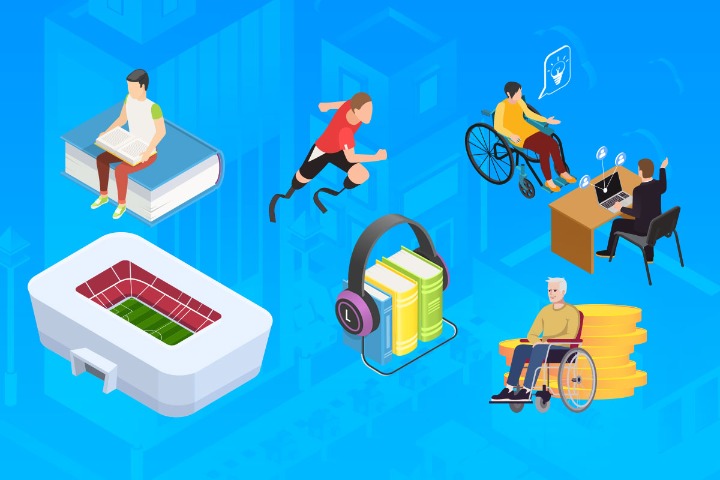Special education of persons with disability at compulsory education stage

The Regulations on the Education of Persons with Disability provide as follows regarding special education of persons with disabilities at the compulsory education stage:
Chapter 3 Compulsory education
Article 13: The people’s governments at various levels shall include the education of children and adolescents with disabilities in local’s compulsory education development plans and map out overall arrangements for its implementation.
People’s governments at or above the county level shall include the supervision, guidance or inspection of the implementation of compulsory education for children and adolescents with disabilities when conducting supervision, guidance or inspection of the implementation of compulsory education.
Article 14: Parents or other guardians of school-age children and adolescents with disabilities shall ensure their children or wards receive compulsory education in accordance with the law.
Article 15: The age limits for admission and schooling of children and adolescents with disabilities receiving compulsory education shall be the same as those for their non-disabled peers; but the age limits for admission and schooling may be expanded when necessary and as appropriate.
Article 16: The administrative departments of education and public health of the people’s government at the county level shall organize consultations on the enrollment of school-age children and adolescents with disabilities, conduct assessment of their disabilities and give suggestions regarding their education methods.
Article 17: School-age children and adolescents with disabilities can receive compulsory education through the following ways, in accordance with actual conditions:
(1) Study in classes of ordinary schools;
(2) Study in the special education classes attached to ordinary schools, welfare institutions for children or other institutions;
(3) Study in special education schools.
Local governments at different levels shall make appropriate arrangements to provide, compulsory education to school-age children and adolescents with disabilities who are unable to study in school due to their physical challenges.
Article 18: In respect of students with disabilities who have financial difficulties, fees and other expenses shall be reduced or exempted according to the circumstances.
Article 19: The educational work in special education schools (classes) for children and adolescents with disabilities shall adhere to the principle of combining ideological, cultural and labor skill education with attention to meeting their physical and mental needs; classification teaching shall be offered to meet the individual needs of students with different disabilities; one-to-one teaching shall be offered schools where conditions permit.
Article 20: The curricula, teaching programs and teaching materials of special education schools (classes) shall be adapted to the needs of children and adolescents with disabilities.
The curricula and teaching programs of special education schools (classes) for children and adolescents with disabilities shall be developed by the administrative department of education under the State Council; while the teaching materials shall be reviewed and approved by the administrative departments of education of the people’s governments at or above the provincial level.
Article 21: Ordinary schools shall, in accordance with the relevant national provisions, admit school-age children and adolescents with disabilities who are able to adapt themselves to study in ordinary classes, and shall provide assistance to them according to their special needs in study and rehabilitation. The schools may have classrooms for guidance in their study where conditions permit.
County level administrative departments of education shall, within their respective administrative areas, strengthen their guidance in the teaching provided at ordinary schools in which children and adolescents with disabilities study.
The compulsory education’s curricula, teaching programs and teaching materials for ordinary schools may be applied to students with disabilities receiving compulsory education in ordinary schools; however, the requirements for their study should be determined with appropriate flexibility.
Article 22: Special education schools that implement compulsory education shall, in accordance with needs and at appropriate stages, carry out labor skill education, vocational education and vocational guidance among students with disabilities.
The Enhancement Program for Special Education is meant to expand the scale of compulsory education for children and adolescents with disabilities. Its goals are:
Expand the scale of classes in ordinary schools. Allow students with disabilities to study in classes of ordinary schools as conditions permit. Improve accessibility conveniences for special education students. Welfare institutions for children can set special classes if conditions permit.
Improve the enrolment capacity of special education schools. The special education schools supported by the state in Middle and West China shall begin recruiting students before the autumn of 2014. Support the existing special education schools, expand enrolment scales and improve enrolment categories.
Organize and conduct home education. The administrative education departments at county-level (municipal and district levels) shall arrange education resources in special and ordinary schools to provide services such as home and remote education for children and adolescents with severe disabilities, while including them in records of student enrolment.




